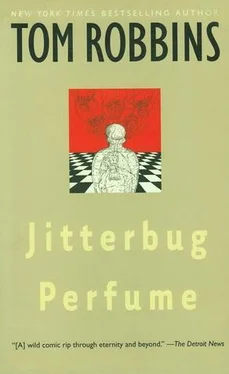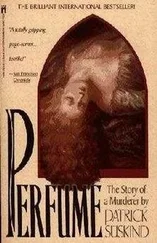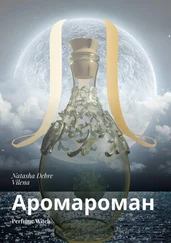“'Tis true, thou homers do have magic of thine own, the gods have always known that, known it even better than thee. We gods know how to use our powers, but most men and women do not know how, that be the difference between us and thee. Sniff sniff.”
“Forgive me,” said Alobar, “but the important difference between men and gods is that gods are immortal and men are not. Is this a result of we men not knowing how to correctly use our powers?”
Pan ran his rather squashed nose along his patchouli-contaminated arm. “Once, a long time ago, when the earth had a flat dark face and a belly of fire, back before the hills had grown so tall that they pushed the moon away, mankind was given a choice between life and death and through trickery or misinformation or something else, made the wrong choice. That is all there is to it.”
“But what if,” asked Kudra, shooting Alobar a meaningful glance, “but what if we decided now to choose life?”
“Then choose it,” said Pan.
Again, Kudra and Alobar exchanged glances. “But would not that anger the gods?” Kudra asked.
“Ha ha ha!” The laughter burst out of Pan like the barking of some obscene dog. “Anger the gods? The gods, those that art still around, wouldst congratulate thee for finally catching on.”
“You mean. .?”
“I mean that the gods do not limit men. Men limit men.”
“We are,” asked Kudra, “as deserving of immortality as the gods?”
“Thou hast not deserved immortality because thou hast been too puny in thy mind and heart and soul. Sniff.”
“But we can change that?” Kudra's voice was hopeful. “We can expand our minds, and enlarge our souls, and choose life over death?”
“Sniff sniff. Thou hast that potential.”
Alobar was nodding his head excitedly, and Kudra wore a smile that you could mail a letter in. An eleventh-century letter, written on parchment, rolled into a cylinder and tied with thongs. The Charmer was still cruising the patchouli patches.
“Great Pan,” said Alobar, with a degree of reverence, “I used to be king over a state, but now I am king over myself.”
“Dearest Pan,” said Kudra, with more than a degree of intimacy (in the preceding night, after all, she and the god had left no sexual stone unturned), “I used to weave rope, but now I weave my world.”
“Methinks thou doth speak from freedom not from vanity,” said Pan, “and I lift my wineskin to thee, for thou art rare among humans. Sniff.” He squirted a stream of wine into his ugly, yet sensual, mouth. Red rivulets ran into his beard to disappear there, sopped up, perhaps, by whorls of thirsty wool. “Ah, but Alobar, doth thou not recall my telling thee that gods art immortal for only so long as the world believes in them? Thou hast only to look at me to see how a god dwindles when belief in him dwindles. Immortality has its conditions. Immortality has its limits. And immortality has its dangers. Whatever thou hast learned about death from thy wise men in the East, thou wouldst do well to remember. .”
“Yes? Go on,” urged Alobar.
“What, Pan? Remember what?” asked Kudra.
It was no use. Pan had finished speaking and would say no more. Nor would he sniff at himself again, for, incredibly, his native odor had peeled away the perfume that masked it; had slowly burned through the potent excess of patchouli like a sun-ray blazing its way through a purple fog, and now, after less than an hour of suppression, the goat gas — that chloride compound of barnyard and bedroom — was boiling again, filling the grotto with a sleazy vapor, a steam to press a rooster's pants.
With the return of Pan's stink, there came renewed mischief in his eyes. When he scampered to the cave to fetch his pipes, Kudra and Alobar began hastily to dress. “We have a long journey ahead of us,” they explained, and with a curious mixture of relief and regret, they bade their divine host a fast farewell.
Neither of them spoke until they reached the pasture, where they stopped to catch their breath after the rigorous descent. There, sitting against the base of the cliff, sequins of sweat sewn to their brows, they regarded one another as pilgrims — or survivors — do. Kudra folded her hands over her uterus, where some very strange little swimmers had recently drowned. Alobar issued a sigh that was shaped like a funnel: a full quart of beet juice could have been poured through it.
“We shan't forget him for a time,” said Alobar.
“We shan't forget him, ever.”
“Then you weren't disappointed?”
“You mean disappointed that he wasn't more like Krishna? Not in the end, I wasn't.” If Kudra was aware of her pun, she failed to betray it. “The only disappointment I feel is in his reticence to advise us.”
“He is Pan. He doth not give advice.” At that, Kudra jumped, and so did Alobar, for it was a third party that had said it. The voice, which came from the bushes just above them, was soft and nonthreatening, and in a moment the branches parted, revealing a woman, as bare-assed as butter. Alobar recognized her as the elder — perhaps the leader — of the nymphs; the one who had addressed him on serious matters the last time he was in that neck of the woods.
“Pardon me, my lady, my gentleman, for following thee.”
“Pardon granted,” said Alobar, “although you did give us a start. Kudra, may I present. .”
“Lalo,” she said, “sister of Echo whose voice, alas, thou hearest repeating thee in all hollow places. Lalo. I only wanted to thank thee for thy visit to Pan. It brought him cheer at a time when his cheer is in short supply.”
“Really?” asked Kudra. “From the way he greeted us at the beginning and dismissed us at parting, he did not strike me as overjoyed by our presence.”
“He is Pan,” said Lalo rather sharply. “Didst thou expect him to bow and kiss thy hand?”
Kudra blushed. Alobar extended his arm to assist Lalo down onto flat ground. The nymph was not quite as nimble as she once had been. “How grave is Pan's condition?” asked Alobar. “Surely he shan't succumb. Pan is in this land, in its crags, in its cataracts, its winds, its meadows, its hidden places, he can never go from the land, he will be here always, as long as the land is.”
“Two things I wouldst say to thee on that account,” responded Lalo. “First, the conclusion that a wise homer — forgive the expression, sir — wouldst draw from Pan's admission that he lives only so long as men believe in him, is that men control the destiny of their gods. Thou mightst even say that men create their gods, as much as gods create men, for as I, untutored or read that I be, understand it, it is a mutual thing. Gods and men create one another, destroy one another, though by different means.”
A whistle escaped Kudra's lips. “Could such a thing be? Yes, if lack of man's belief is what is ailing Pan, it must be true.”
“A warning!” snapped Lalo, who at that moment sounded more like a Fury than a nymph. “Thou must never wax smug or arrogant about they influence upon the divine. If thou didst create gods, it was because thou needest them. The need must have been very great indeed, to inspire such a complex, difficult, and magnificent undertaking. Now, many art the men who think they no longer needeth Pan. They have created new gods, this Jesus Christ and his alleged papa, and they think that their new creations will suffice, but let me assurest thee that Christ and his father, as important as they may be, are no substitutes for Pan. The need for Pan is still great in humanity, and thou ignoreth it at thy peril.
“That bringeth me to the second thing,” Lalo continued. Her deep-set eyes were burning, her wine-red nipples were as erect as toy soldiers. “Thou art correct, Pan doth be in the land, he and the wildwoods art a part of one another, but thou art mistaken when thou implieth that the land doth last eternal. There be a time coming when the land itself be threatened with destruction; the groves, the streams, the very sky, not merely here in Arkadia but wildwoods the world over. .”
Читать дальше












